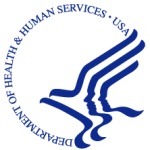- Branche: Government
- Number of terms: 33950
- Number of blossaries: 0
- Company Profile:
United States Department of Health and Human Services, Radiation Emergency Medical Management
A condition in which moderately abnormal cells grow on the thin layer of tissue that covers the cervix. These abnormal cells are not malignant (cancer) but may become cancer. Also called CIN 2.
Industry:Health care
A nutrient in the vitamin B complex that the body needs in small amounts to function and stay healthy. Cyanocobalamin helps make red blood cells, DNA, RNA, energy, and tissues, and keeps nerve cells healthy. It is found in liver, meat, eggs, poultry, shellfish, milk, and milk products. Cyanocobalamin is water-soluble (can dissolve in water) and must be taken in every day. Not enough cyanocobalamin can cause certain types of anemia (a condition in which the number of red blood cells is below normal) and neurologic disorders. It is being studied with folate in the prevention and treatment of some types of cancer. Also called cobalamin and vitamin B12.
Industry:Health care
An anticancer drug that belongs to the family of drugs called antimetabolites.
Industry:Health care
A condition marked by increased levels of uric acid in the blood, joints, and tissue. The buildup of uric acid in the joints and tissues causes arthritis and inflammation.
Industry:Health care
An antibiotic drug used to treat severe or very resistant infection. It belongs to the family of drugs called carbapenems.
Industry:Health care
A plant with aromatic leaves and flowers that is a member of the mint family. Oil from the flowers has been used in some cultures to treat certain medical problems, to keep insects away, and to wash in. It is also used in aromatherapy. Perillyl alcohol, a substance found in lavender, is being studied in cancer prevention and treatment. The scientific name is Lavandula angustifolia. Also called English lavender and true lavender.
Industry:Health care
A type of white blood cell that surrounds and kills microorganisms, removes dead cells, and stimulates the action of other immune system cells.
Industry:Health care
Anything that causes a mutation (a change in the DNA of a cell). DNA changes caused by mutagens may harm cells and cause certain diseases, such as cancer. Examples of mutagens include radioactive substances, x-rays, ultraviolet radiation, and certain chemicals.
Industry:Health care
